Series: Choosing an alcohol free life
Drinks have been a beloved shikohin since ancient times, especially alcoholic ones. In Japan it is said that large scale sake brewing started about 2,000 years ago, along with the beginning of rice cultivation. Even today, alcohol continues to be a popular shikohin.
On the other hand, some changes are arising in how alcohol is perceived. There is a growing number of people who are choosing a sober curious lifestyle and the notion that alcohol is the shikohin of choice for adults is gradually crumbling. So what significance does alcohol have in our modern lives and what changes are behind the shift towards sober curious lifestyles?
In this series, “Choosing an alcohol free life”, critic Tsunehiro Uno will speak with intellectuals of various backgrounds to discuss the current status of alcohol as a shikohin and the lifestyle behind adults who are choosing a sober life.
For the third article of this series, we welcome Lyie Nitta, founder of tabel, a Japanese tea brand that takes traditional teas and reinvents them for the modern market. Traditional teas include mugwort tea, lotus tea, dokudami tea, and other medicinal herbs that are native to Japan. Nitta launched the tabel brand in 2014 and has been promoting medical herbs and traditional tea culture ever since.
Nitta’s story and our discussion on the benefits of traditional tea and the importance of “choosing” tea, brought to light the potential of tea as an alternative to alcoholic beverages and the emergence of a new tea culture.
It is not difficult to brew tea. That is what makes it special
Uno: First of all, please tell us about how you first became interested in Japanese medical herbs and what led to the launch of the traditional tea brand, tabel.
Nitta: I was born in Tsuruhashi, Osaka and my family ran a bakery, so ever since I was a child I loved to eat. When I was a junior in high school and starting to think about my future career path, there was a series of events surrounding food that shook me. My father was diagnosed with diabetes and my best friend suffered from an eating disorder where she would repeatedly starve herself or overeat. It was the first time I learned how “dangerous” food can be.
These experiences made me want to work in a field that would allow me to help people maintain a healthy lifestyle through food so I became a certified dietitian. However, while I was studying to become a certified dietitian in university, I felt that there were aspects of nutrition that were not being addressed enough.
Nutrition science is a field that is suited for managing the diet of an unspecified majority of people, such as food that is served in schools and hospitals. However, it does not have a systemized method for personalizing meals to improve health based on individual needs, constitution, or physical conditions. It also does not consider the incorporation of seasonal foods and ingredients.
When I was beginning to feel the need to study diet beyond nutritional science in order to create more personalized and individual diet plans, I came across yakuzen, or Japanese medicinal cuisine.
Yakuzen is a diet based on traditional Chinese medicine and I found that both yakuzen and modern day nutritional science has its strengths. By combining the two, I believed that I could optimize meals to provide even more health benefits. However, changing one’s diet is one of the hardest things a person can do.
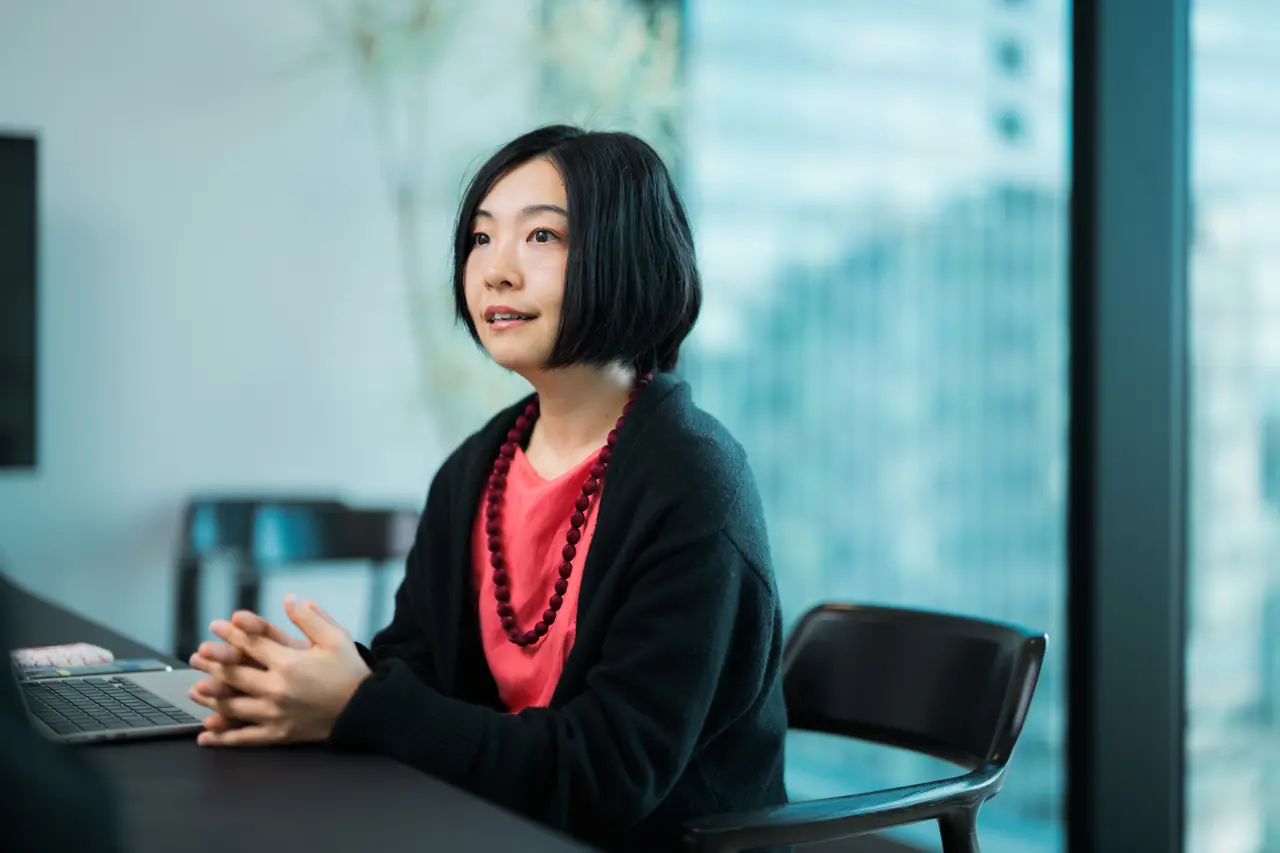
Uno: Yes, no matter how healthy yakuzen may be, it is hard to imagine myself eating it everyday.
Nitta: A person’s lifestyle determines a person’s eating habits so it is not an easy thing to change. Furthermore, vital ingredients for yakuzen such as jujube and wolfberries are very difficult to obtain. Even in small quantities these ingredients are known to have specific effects on the body and are considered a superfood, but they are not readily available domestically.
Although there are good overseas sources, I wanted to find more easily obtainable domestic superfoods and that is when I learned about Japanese medicinal herb culture. In the past, medicinal herbs were a deep rooted part of Japanese culture and people used native plants and trees to improve their health.
Many of the people who are well informed about this traditional custom are elderly, so there are very few people who are able to actively share that information online. Their wisdom is rooted in their lifestyle and environment and it is not easy to access. Still, the culture of medicinal herbs exists in Japan. If you travel around the country, you can find various experts on medicinal herbs.
While there are many different ways to utilize medicinal herbs, in most cases they are consumed as tea. An individual’s skills for cooking may vary, but brewing tea can easily be done by anyone because all you need to do is pour cold or hot water on the tea. Furthermore, most people have three meals a day, but it is said that on average we drink a beverage seven to eight times a day.
It is easy to incorporate this habit into our lives, and in just five minutes one can add something that will have a positive effect on their body. This is why I believe there is a lot of potential in tea made from medicinal herbs. Thus, I began calling tea made with medicinal herbs “traditional tea” and founded the tabel brand.
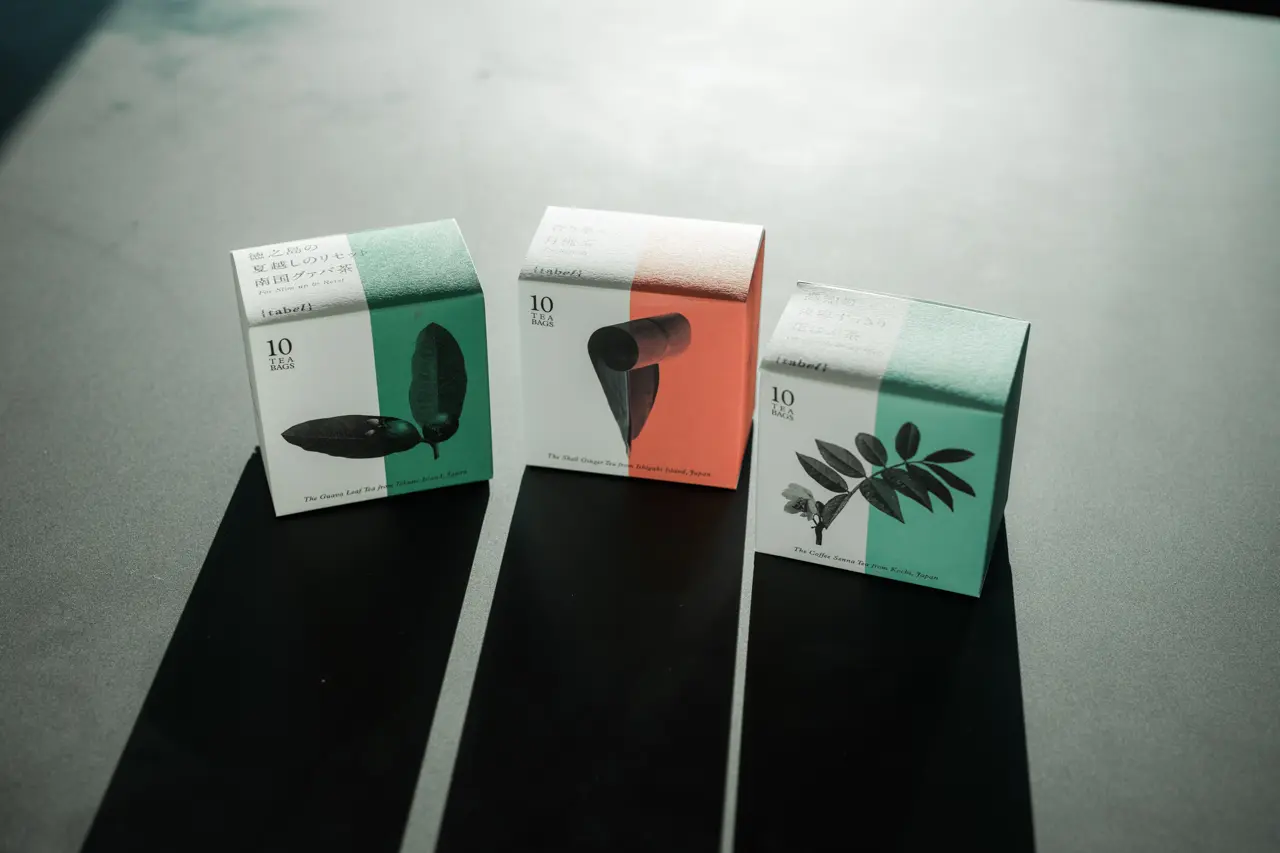
Learning to observe your body to understand its needs
Uno: What kind of change do you hope to initiate in the food and beverage world by promoting traditional tea? I believe you talk about how we must learn to observe our bodies in our daily lives through the act of drinking and think about how we are connected to the land, etc. It seemed to me that these ideas were more key to you than drinking traditional tea simply because it is good for one’s health.
Nitta: My hope is that more people will learn to observe their mind and body and choose what they will drink according to their needs at the time.
If each household stocks several varieties of tea, people will take time to think about what they should drink. I think this moment of thought will make them more conscious about their bodies and their surroundings, such as what the weather is like that day. They may think, “It’s hot today, so this tea is good” or “I am having digestive problems today so I should have this tea.” If tea can offer us a moment to observe and think about our bodies, I think that is a good thing.
Uno: I think there are many people who walk into a cafe when they are feeling thirsty after walking outside, and order an iced coffee without thinking about it. This decision is made almost unconsciously.
I personally think I am careful about observing and understanding my body, but I often find myself unconsciously ordering an iced coffee and regretting it later.
As you say, I think taking a moment to think about your body when choosing what to drink will lead to a more enriched lifestyle, but this is not easy to put into practice. I think a certain amount of training and knowledge is necessary in order to know and choose what your body needs at that moment, but what do you think is necessary to make that process easier?

Nitta: First of all we must have a firm grasp and understanding of our own bodies. Learning about our health through the results of a health check up is of course important, but in Chinese medicine, which yakuzen is based upon, body constitution is also important.
In order to help people learn about their body constitution, we made an app called Qusnoki. There is a doctor who teaches that the constitution of modern people can be classified into eight categories. We designed the app to incorporate this concept and diagnostic methods. One can easily learn about their body by answering a few questions on the app.
Of course, the app is only one method and starting point in order to learn about your body. Taking various approaches to learn about your body is the first step you can take in order to gain the knowledge necessary to judge the needs of your body.

Changing how you select tea will change your lifestyle
Uno: Similar to the example of ice coffee that I mentioned earlier, I think culture influences the unconscious choices we make about food and drink. For example, I dislike drinking parties and oftentimes in Japan everyone orders a beer first by default in these settings.
I think this is an example of group logic. Drinking parties in and of itself is a way we confirm our place in social groups and because communication is important in these settings, we choose this group logic. In other words, what we choose to drink in these settings plays a role in promoting social communication.
This means that such choices of food and drink is not based on the desire of our bodies, but based on our self consciousness. I think it is important that we instill in society the idea to choose what to eat and drink according to the state of our body and mind in the given moment.
Nitta: Indeed there are many situations where alcohol and drinks are used as an ice breaker for communication.
Uno: Even more than alcohol, I think there are more people who choose what tea to drink without thinking. In most cases nowadays, when people want to drink tea they go to a convenient store and pick a famous tea brand in a plastic bottle without much thought. Perhaps they have a brand preference but I think most people choose without thinking.
I think changing the way we make choices has the potential to make big changes in our lives. Tea is something most of us drink daily. We drink it at work, while watching tv, and in social situations. In other words, tea is something we drink while we are doing something else.
That is why most people do not think much when choosing a tea to drink. Rather than looking at a daily drink like tea as something merely to quench our thirst, I think our lives will change drastically if we can look at tea as something that helps us stay healthy.
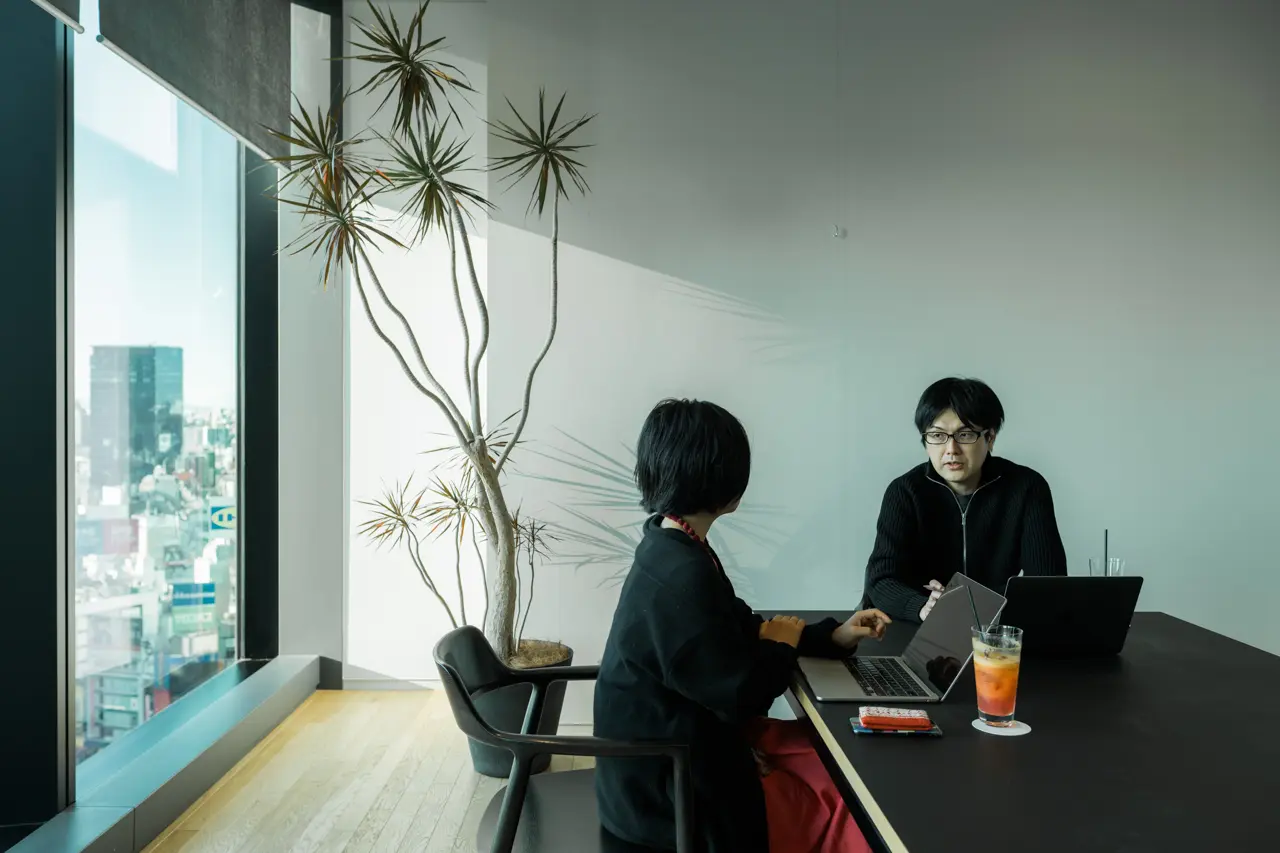
Nitta: I think people choose tea over coffee if their stomach is feeling a bit heavy and in such situations I think it would be even better if they choose the most appropriate tea for stomach pain.
Time is another important factor when choosing what to put in our bodies.
Uno: What do you mean by time?
Nitta: I am currently studying Chrono-nutrition in graduate school. Chrono-nutrition is a study that focuses on not only what we eat, but when we eat. For example it is known that DHA and EPA in fish help reduce neutral fats (triglycerides), but research shows that they are most effective when consumed at breakfast rather than at dinner.
For tea, catechins in green tea are said to be effective in suppressing the rise of blood sugar levels and it is said to be more effective if consumed in the evening rather than in the morning.
In this way, knowing not only the effects that food and drink have on our bodies, but also when those benefits are most effective can change the way we address food and drinks.
Bringing back the joy of choosing tea
Uno: As much as I think it is important to know not only what to consume but when to consume something, I don’t think many people seek to consult an expert like you.
Rather than thinking about nutrition, people tend to think more seriously about choosing what kind of cake to eat. At least this is true for myself. I think it would be great if choosing tea can be as exciting as choosing cake. I feel that this would really change Japanese tea culture.
Nitta: I agree. If you go to a convenience store or supermarket in Korea, there are a surprisingly wide variety of traditional teas available. As you mentioned earlier, although there are many teas available in Japanese convenience stores, most of them are a kind of black tea or green tea, which are both tea tree (chanoki) based teas.
I feel there are very few caffeine free options. Although I love tea tree based teas, depending on the time or situation I would like different nutritional or flavor options and I think it would be fun if there was a larger variety of choices.
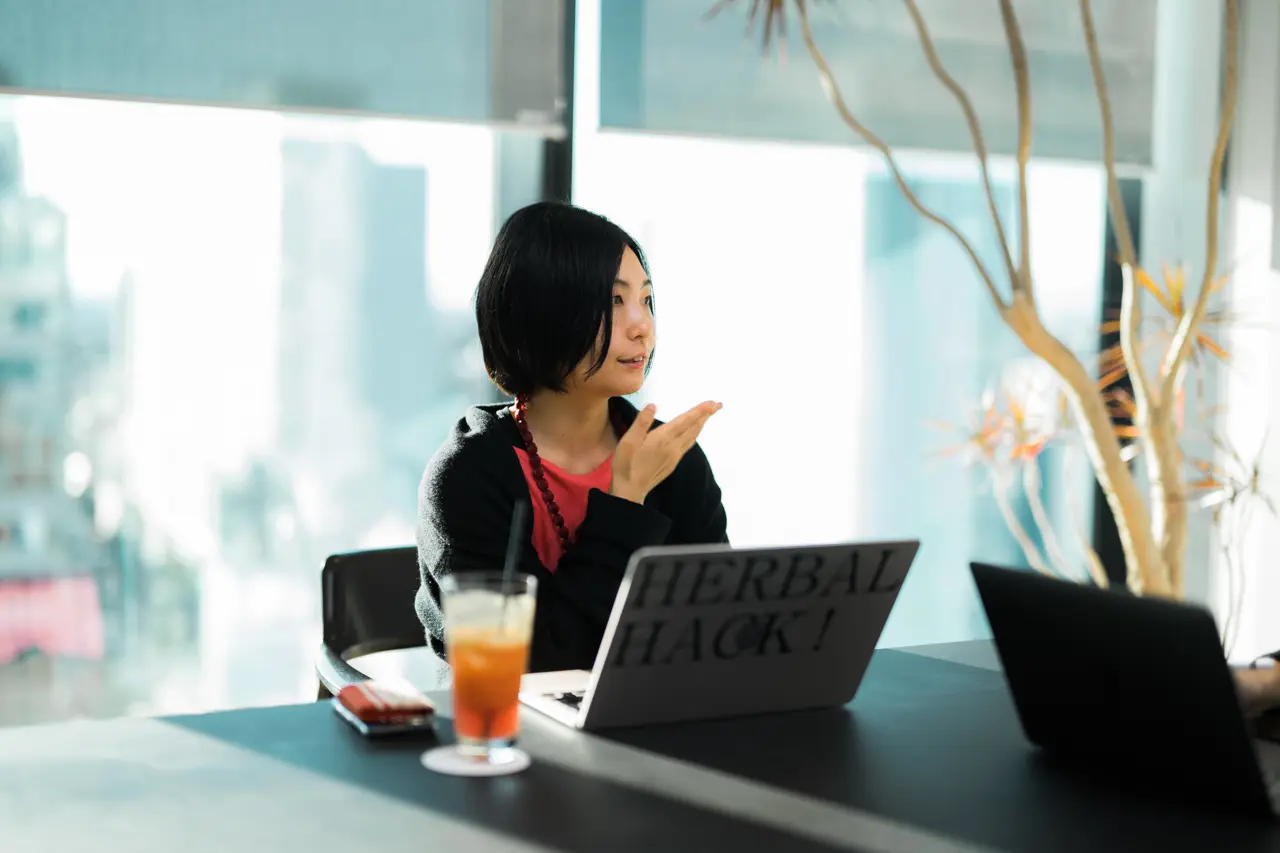
Uno: I think we need more excitement with tea. I believe there are two types of people in this world. One is the person who will choose a drink at random from the closest vending machine they find when they are thirsty. The other is the person who will walk around to different vending machines until they find the drink they are seeking.
I used to work as a radio personality and we would often get asked for relationship advice from university students so I would use this vending machine metaphor. I would tell them that they are trying to pick a random choice in the vending machine in front of them. Although that is one way to make choices, you may regret it for the rest of your life.
Even if you are the person who usually walks around looking at various vending machines until you find what you want, I feel that when it comes to tea most people are not enjoying the process. The reason for this is that the development of green tea culture in Japan has become oversaturated. It is a free drink that is offered to us without thought, and the act of drinking tea is something we have been trained to do without question.
As you discovered through your travels and studies around Japan, there are many teas besides green tea in Japan and a much more abundant tea culture. Of course I think it is important to choose tea according to your physical needs, the effect of the tea, etc., but I also think that the most important thing is to enjoy the process of choosing tea.
Nitta: For better or worse, Japan has a very efficient distribution network that gets goods to every corner of the country. No matter where you are, you can get good green tea at an affordable price. While this is very convenient, we spend less time now making our own tea and the variety of wild herbal teas in the market has decreased so it is hard to find. On the other hand, the fact that we have access to good green tea at a reasonable price anywhere in the country means that we have the technology and distribution system to produce and distribute high quality, delicious tea everywhere.
That is why I think it is possible for us to develop the best traditional tea market in the world. Already the lotus tea from tabel is being brewed and served at the end of the meal at a three star restaurant. There is still a lot of potential for Japanese traditional tea to grow and expand.
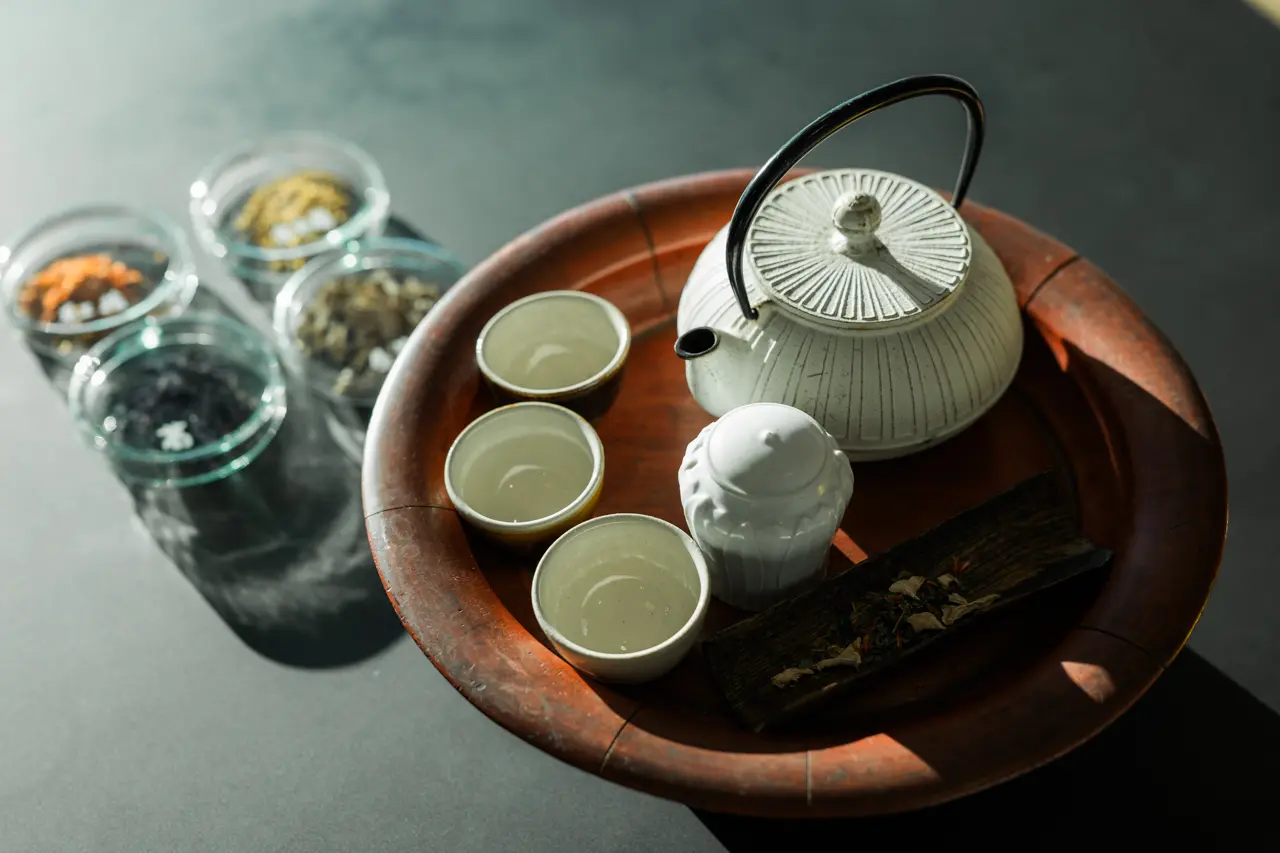
Uno: Having a delicious flavor is also very important. I feel that when I say that good flavor is an important part of choosing food and drink nowadays, people say that I am lacking awareness.
This comes from the idea that whether the food is ethical or whether it plays a role in communication is more important than its flavor. However, I think the deliciousness of food and drink should not be taken lightly. Rather than drinking for communication or moral good, I think it is important not to underestimate the importance of savoring food and drink itself.
I think the reason why alcohol is so influential as a drink is because it helps to initiate conversation and it goes well with food. In other words, it makes good food taste even better. So if tea could play this part, I believe it is possible for it to replace alcohol.
Nitta: Just like the example of cake that you mentioned earlier, alcohol gives us a pleasant sensation in our brain when we consume it. We want more because the brain remembers experiencing this pleasant sensation. It is true that herbal teas and vegetables do not have such a strong effect. I would like to try making teas that excite the brain in a way that alcohol does.
Cultivating a new way of understanding land through traditional teas
Uno: I also feel that traditional tea has the potential to change our lives by changing our awareness toward the connection between people and the land. Fermentation has been a hot topic for a few years now, and I think it is because it fits in with the movement of slow foods, which is about reviving local food and produce culture.
Perhaps the same thing can be said about traditional tea and medicinal herbs. In other words, various medicinal herbs and teas made from local ingredients are undeniably connected to the local land and is one way to think about our relationship with our land.
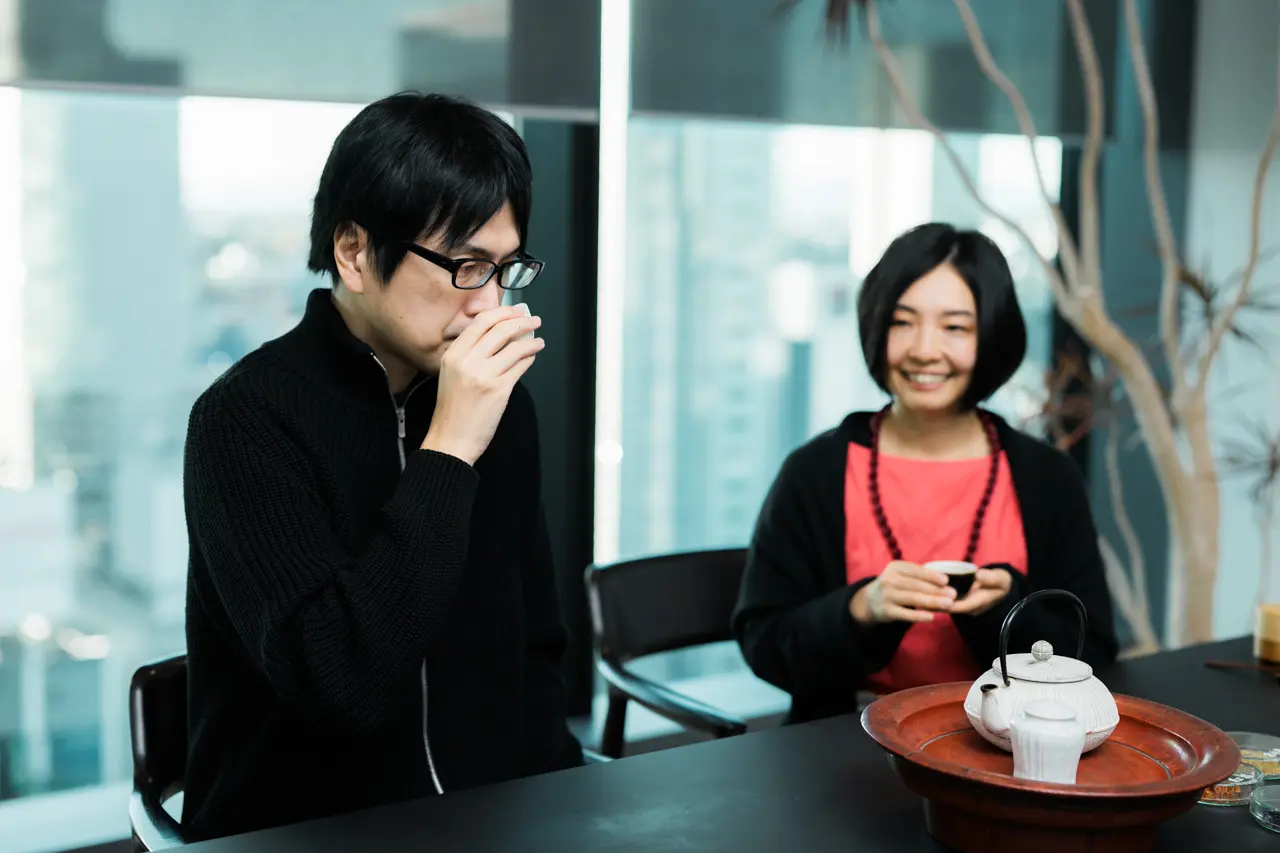
Nitta: I agree. It is easy to make tea with local ingredients. You need skill and experience in terms of temperature control and brewing time in order to fine tune it, but it is not difficult to simply enjoy at home. If you find mugwort growing in your neighborhood, you simply have to pick and dry it to make mugwort tea.
Of course, all land in Japan is now owned by someone so you are not allowed to pick leaves on private, public or state owned land.
However, in Scandinavian countries such as Sweden there is a law known as “everyman’s right”, or the freedom to roam. It is the right for every person to enter and enjoy the natural environment as long as they do not damage or trouble the land owner and are respectful toward plants and animals.
For example, people are allowed to pick blueberries in the local forests as long as it is for their own personal consumption. I am not certain what the best practice would be for Japan, but if such rights were recognized here I believe it will bring a positive change to our food culture and daily lives.
Uno: The custom of going into forests and fields to pick herbs to use for food and medicine must have existed until recently in Japan as well. It is probably still common among the elderly population in the countryside today. Up until my grandparent’s generation it was common practice so I believe that this custom can be restored.
Picking medicinal herbs can also be entertaining and fun. I think it would be great if it can become a popular outdoor activity like fishing. This will surely make our tea culture richer.
I think our perception of land will change when the culture of medicinal herbs and traditional tea takes root once again. I personally enjoy observing insects and I like to think about what kind of insects live in the trees along the streets. In the same way, if you become familiar with medicinal herbs and traditional tea, your view of your surroundings will change. The more opportunities you take to look at the land around you, the more enriched your life will become.
In that sense, I hope the movement behind traditional teas will grow and I hope to incorporate it more in my own life as well.
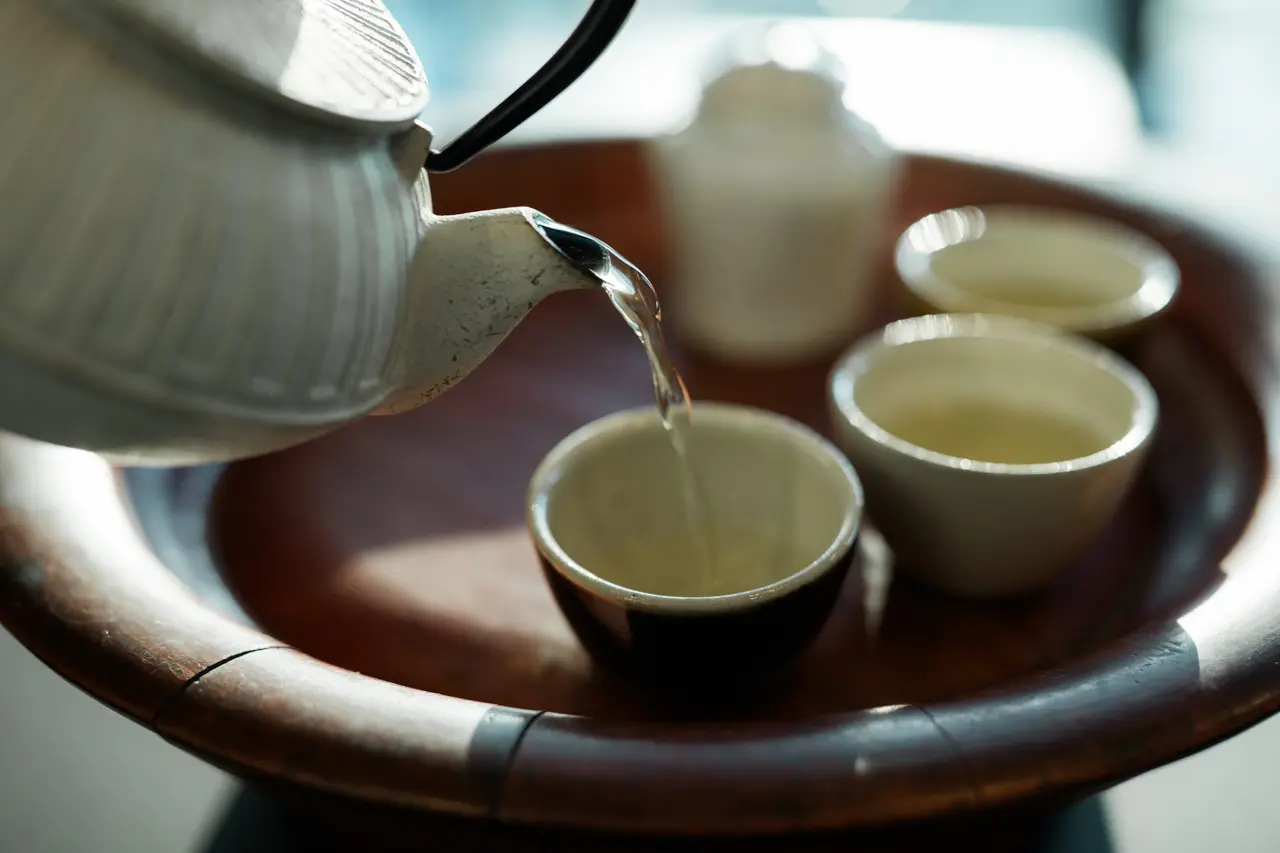
Translation : Sophia Swanson
